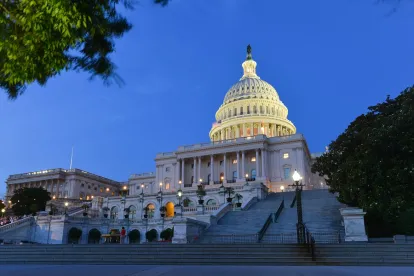Legislative Activity
Congressional Lawmakers File Amicus Brief in Net Neutrality Challenge
On September 21, twenty-nine members of Congress, led by Sen. Edward Markey (D-MA) and Rep. Anna Eshoo (D-CA), filed an amicus, or “friend of the court,” brief in the pending challenge to the Federal Communications Commission’s (“FCC”) net neutrality rules in the U.S. Court of Appeals for the D.C. Circuit. Senator Markey and Representative Eshoo were critical voices in the period leading up to the FCC’s adoption of its strong net neutrality rules, consistently calling on the FCC to reclassify broadband as a telecommunications service under Title II of the Communications Act. In their brief, the lawmakers voiced support for the FCC’s rules, adding that the FCC did exactly what Congress intended them to do in its adoption of the new open Internet rules. They also argued that the reclassification was both well within the FCC’s powers as delegated to it by Congress and a reasonable interpretation of the relevant statutory language and therefore entitled to judicial deference. Oral argument in the net neutrality challenge is currently scheduled for December 4, 2015 beginning at 9:30 AM.
House Subcommittee Examines Broadcast Ownership Issues
On September 25, the Communications and Technology Subcommittee (“Communications Subcommittee”) of the House Energy & Commerce Committee (“House Commerce Committee”) held a hearing entitled “Broadcasting Ownership in the 21st Century.” Discussions centered upon developments in the contemporary media market, existing FCC rules that limit ownership of broadcast outlets, and barriers faced by women- and minority-owned businesses. The FCC’s current regulation of media ownership is intended to promote market competition, localism, and a diversity of voices. Testifying at the hearing were representatives of the Newspaper Association of America, the Multicultural Media, Telecom and Internet Council, Digital Content Next, Common Cause, the National Hispanic Media Coalition, and the National Association of Broadcasters.
Regulatory Activity
FCC Seeks Comment on Petitions for Reconsideration of Incentive Auction Rules
On September 21, the Federal Communications Commission (FCC) released a Public Noticeseeking comment on two Petitions for Reconsideration (Petitions) relating to the FCC’s rules for conducting the broadcast television spectrum incentive auction, which aims to repurpose spectrum currently designated for broadcast television stations to mobile broadband use. The Petitions—filed by VideoHouse, Inc. and GE Healthcare—request reconsideration of the FCC’s June 19 Second Order on Reconsideration, which itself addressed Petitions for Reconsideration of rules for the incentive auction adopted in the June 2, 2014 Incentive Auction Report and Order. The VideoHouse, Inc. Petition asks the FCC to reconsider its decision to deny protection from interference to four Class A television stations during the repacking phase of the auction (i.e., when broadcasters are moved from their current spectrum onto different spectrum bands). The GE Healthcare Petition ask the FCC to “re-evaluate and strengthen” rules to protect Channel 37 Wireless Medical Telemetry Service (WMTS) operations from interference. WMTS is used for the remote monitoring of a patient’s vital signs and other health parameters.
Oppositions to the Petitions are due within 15 days of the publication of the Public Notice in the Federal Register, and Replies to Oppositions are due within 10 days after Oppositions become due.
Comments Due October 26 for Rules and Proposals for Replacing Copper Networks
On August 7, the FCC released a Report and Order, Order on Reconsideration, and Further Notice of Proposed Rulemaking containing rules and proposals to “further the technology transitions underway in our Nation’s fixed communications networks” and to “ensure that the deployment of innovative and improved communications services can continue without delay.” In the Further Notice of Proposed Rulemaking (FNPRM), the Commission sought comment on proposals to address “issues presented by the ongoing technology transitions process” with the purpose of adopting “clear criteria that will eliminate uncertainty that could potentially impede the industry from actuating a rapid and prompt transition to IP and wireless technology.”
The primary proposal on which the FCC sought comment in the FNPRM was the clarification of the criteria used to evaluate alternative services when considering a Section 214 discontinuance of service application, which carriers are required to file whenever they seek to “discontinue, reduce, or impair service” under Section 63.71 of the FCC’s rules. As set forth in the FNPRM, the FCC proposes that, to be eligible for an automatic grant of discontinuance, any substitute service offered by the carrier will be evaluated against the following criteria: (1) network capacity and reliability, (2) service quality, (3) device and service interoperability, (4) service for individuals with disabilities, (5) 9-1-1 and public safety service, (6) cybersecurity, (7) service functionality, and (8) coverage. The FCC seeks comment on these metrics as well as any additional criteria that should be included.
Per the publication of the FNPRM in the Federal Register, comments are due October 26, and reply comments November 24.
FCC Fines Three Companies for Failing to Accept 911 Calls for Hard of Hearing Persons
On September 24, the FCC’s Enforcement Bureau (EB) entered into Consent Decrees with Hamilton Relay, Inc., InnoCaption, Inc., and Sprint Corporation to resolve the EB’s investigation into whether those companies were “unable to accept and handle emergency calls made by users of [the companies’] web and wireless Internet Protocol Captioned Telephone Service (IP CTS) and [whether they] submitted inaccurate data to the Telecommunications Relay Service (TRS) Fund administrator,” according to the Consent Decrees. IP CTS is a TRS service used by deaf and hard of hearing persons that allows callers to “simultaneously listen while reading captions of what the other party is saying,” per a News Release accompanying the Consent Decrees.
The News Release explained that the companies were unable to relay 911 calls over periods ranging from “5 weeks to approximately 10 months.” The companies’ inability to handle 911 calls was discovered through test calls made by EB staff in 2014. Per the terms of the Consent Decrees, the companies will pay a penalty and agree to adopt “robust compliance plans” that include measures that, among other things, will “ensure that [the companies] adhere to the FCC’s emergency call handling requirements for IP CTS providers[.]”
FCC Seeks Comment on Petitions for Reconsideration of Citizens Broadband Radio Service Rules
On April 17 the FCC adopted rules for the Citizens Broadband Radio Service that authorize spectrum sharing among commercial and federal operators in the 3550 MHz to 3700 MHz band, which the FCC released in a Report and Orderon April 21. On September 22, the FCC released a Public Notice seeking comment on eight related Petitions for Reconsideration filed by: (1) Wireless Innovation Forum, (2) Jon M. Peha, (3) Motorola Solutions, Inc., (4) CTIA – The Wireless Association, (5) Verizon, (6)Satellite Industry Association, (7) National Association of Broadcasters, and (8) Nokia Networks. Oppositions to the Petitions for Reconsideration are due within 15 days of the publication of the Public Notice in the Federal Register, and Replies to Oppositions are due within 10 days after Oppositions become due. The Public Notice has not yet been published in the Federal Register.
FCC Issues Orderly Shutdown Procedures In Advance of Possible Government Shutdown
On September 25, the FCC issued a Plan for Orderly Shutdown Due to Lapse of Congressional Appropriations (Shutdown Plan). The Shutdown Plan states that “[g]enerally, during a shutdown all FCC activities other than those immediately necessary for the protection of life or property will cease[,]” including licensing, processing of consumer complaints, and equipment authorization.





 />i
/>i
